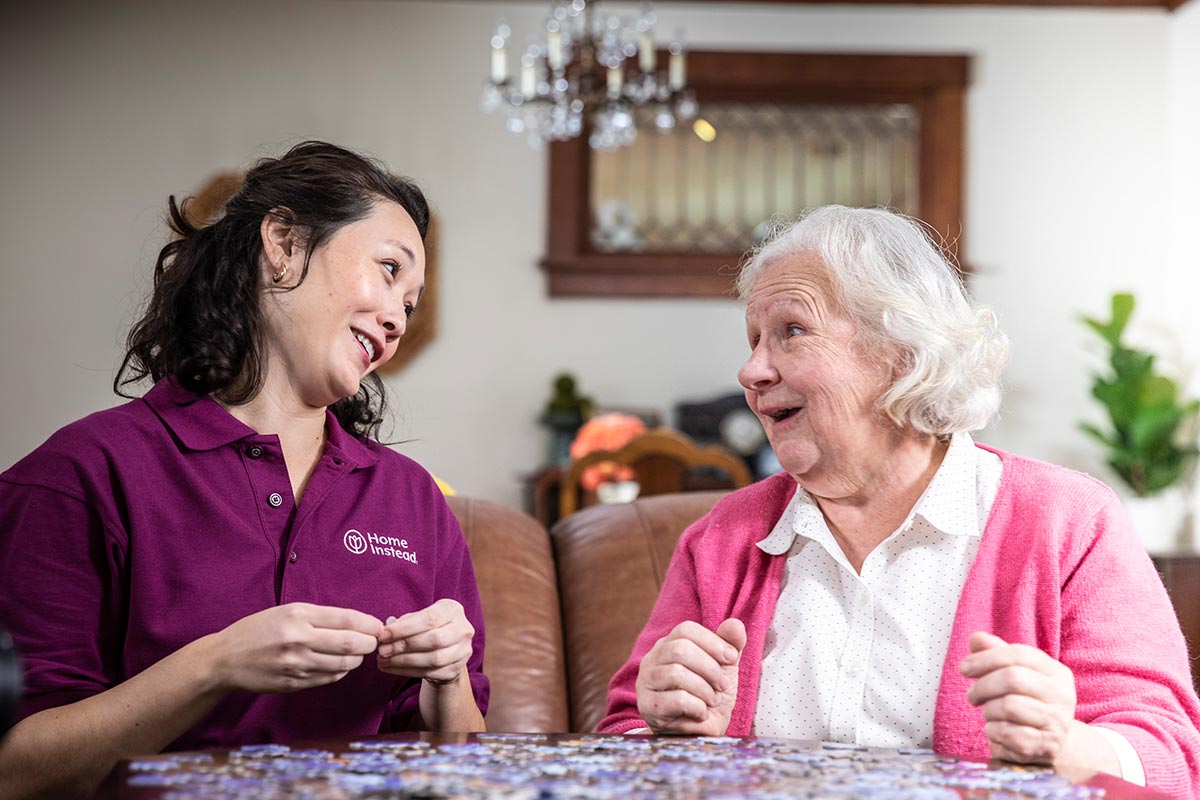There are two paths to take in the tricky live-in caregiver search: go for the best caregivers or look for cheaper alternatives. The cheaper alternative path holds an appeal to the adventurous. In the case of live-in care the cheaper alternative would be to try to find good live-in caregivers that are willing to work for a fraction of the price of their peers. What does the cheaper alternative look like compared to the regular alternative and which one is right for your family?
What is the cheaper alternative in the live-in care world? It is like a nanny set up. There are certain hours of the day that the caregiver is expected to work and certain duties they will do. When the caregiver is off duty, which is typically for 15 hours a day, they are relieved of their duties and free to leave the house and live their life. The client can hope that they don’t actually leave the house in case they are needed.
No home care agency in the state of Massachusetts operates this way but some from out of state send their caregivers to Massachusetts to do this. They drive caregivers to a client’s home from New York or elsewhere and drop them off. The caregiver typically stays in the home for three to four weeks straight. Then a fill-in caregiver is dropped off and the regular caregiver is driven back to the state they came from for a few days.
The major challenge with this alternative is that the best caregivers do not want to work this way. That leaves these jobs to either an inexperienced pool of caregivers that are just starting out and learning the job as they go or a pool that is desperate. If your parent is pretty well able to care for themselves then this option works better. If your parent needs a lot of help, then it can be dangerous to have an inexperienced person from out of state trying to manage it alone with a limited support network.
A summary of the main challenges with the cheap alternative to live-in care are the following:
- No agencies in Massachusetts operate this way. Only out of state agencies try to make this work (some may make it appear that they have a physical presence in Massachusetts).
- There is no backup caregiver option readily available or a second set of hands to help or management oversight that can quickly help in tough situations.
- Caregivers may be upset that they get paid only 9 out of 24 hours while their peers in-state are getting paid for 16 to 24 hours each day.
- Caregivers are required to work non-stop for several weeks in a row which may stress them out.
- If they are sick there is not a local option that can come and fill in for them so they have to work through it.
- Caregivers don’t know or understand the local area.
- Language issues are typically tougher to navigate.
- Most caregivers will not agree to work this type of a live-in case or will leave as soon as they can find a better option, so turnover is higher.
- Family feedback on how this works out is what you would think it would be.
One family described the cheap alternative like this: “They recruit people who are flat broke. The current caregiver lives in Queens, NY and travels to CT. From CT, they drive the person to my mom’s home in Saugus, MA. The caregiver works four weeks straight. The rate is great but overall the service is poor and we are looking to switch to Home Instead.”
What is the regular alternative in the live-in care world? It’s like what you would expect. There is a caregiver at the house around the clock. They will get periodic breaks during the day but they are not going to leave the house unless it is to do an errand for the client. They are going to be attentive to the client day and night as needed. They typically work two, three or four days in a row and have the rest of the week off to be with their family and friends and recharge. They live locally and know the area. They have a local office to offer backup help when needed. If they get sick there is someone that can easily get there at a moment’s notice to fill in. There is local oversight and support to make sure the client and caregiver are both doing well.
This type of care costs more. There is a reason no agencies in Massachusetts do this critical work the other way though. Imagine if your mom needed surgery because she was not doing well and a doctor, that was not affiliated with any local hospital, had little experience, was driven up from out of state, earned half the price all other doctors made, and performed the critical procedure your mom needed? You would have to hope for the best but be prepared for the worst.



